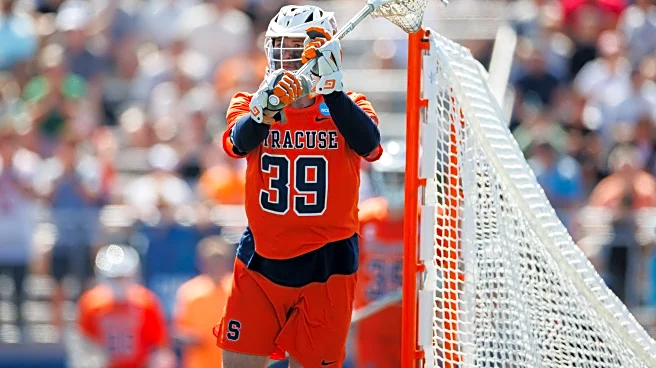What's Happening?
FC Schalke 04, a German football club, has publicly condemned the actions of some of its supporters after two tourists reported being attacked in Dublin. The incident occurred on Abbey Street as fans paraded through the city center following a friendly match against League of Ireland side Bohemians. Carly Clarke, a photographer from Eastbourne, was pushed by a fan attempting to grab her camera. Stephen Lovell-Davis, a fellow photographer from London, intervened but was subsequently pushed to the ground and kicked in the head. Both tourists were in Dublin for a photography exhibition and encountered the group of fans while taking photographs. The club has stated it will rigorously investigate the events and has launched an internal review process.
Why It's Important?
The incident highlights ongoing concerns about fan violence and its impact on public safety during sporting events. FC Schalke 04's condemnation and commitment to investigate the behavior of its supporters underscore the importance of accountability in sports culture. Such incidents can tarnish the reputation of clubs and affect international relations, especially when they occur abroad. The attack on tourists also raises questions about the safety of public spaces during large gatherings, potentially influencing future policies on crowd control and event security.
What's Next?
FC Schalke 04 has initiated an internal review to identify those responsible for the attacks. The club's statement suggests a commitment to addressing the issue, which may lead to disciplinary actions against involved fans. An Garda Síochána, the Irish police service, has contacted Stephen Lovell-Davis regarding the incident, indicating potential legal proceedings. The outcome of these investigations could influence how clubs manage fan behavior during international events, possibly leading to stricter regulations and security measures.
Beyond the Headlines
The incident in Dublin reflects broader challenges in managing fan behavior in sports, particularly in international contexts. It raises ethical questions about the responsibility of clubs to ensure their supporters act appropriately, especially when representing the club abroad. The cultural dimension of sports fandom, which can sometimes lead to aggressive behavior, may require clubs to implement educational programs promoting respectful conduct. Long-term, this could lead to shifts in how sports organizations engage with their fan base to prevent similar incidents.












